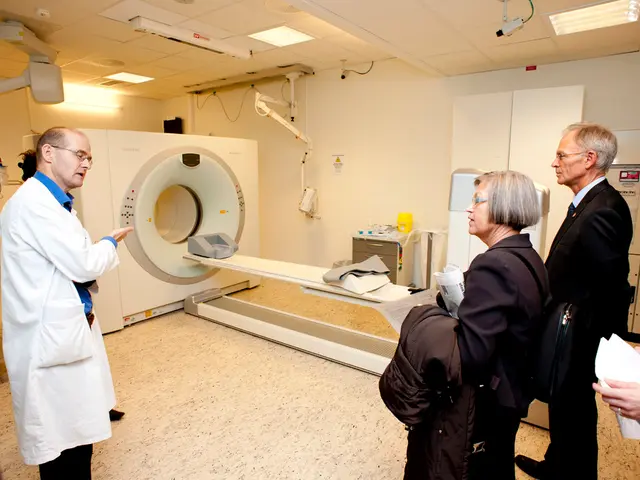Medical Association Head Warns: Germany Approaching Critical Supply Point
Exponential Rise in Healthcare Costs: German Medical Association Pleads for Systematic Reforms to Avert looming Crisis
The wide-ranging, exorbitant, and inefficient German healthcare system necessitates a swift and dramatic transformation, warns the president of the German Medical Association, Klaus Reinhardt. He urges politicians to rectify this critical issue promptly, as the system threatens to plummet into a catastrophic supply crisis.
Reinhardt anticipates potential disruptions in the medical network if decisive reforms are not implemented without delay. "If we do not act swiftly, our healthcare system will hurtle headlong towards a supply crisis," Reinhardt forewarned. A major focus should be the enhancement of healthcare management. Reinhardt advocated for patients to establish a relationship with a family healthcare practice, which would then streamline and coordinate their further treatment.
Germany's healthcare structure is unique in that patients are primarily responsible for coordinating and managing their healthcare needs. "The most vulnerable sectors of our population, including the aged, chronically ill, and those with lower health literacy, bear the brunt of this arrangement," Reinhardt stated. Germany ranks among countries with the highest frequency of doctor's visits per capita, boasting 9.6 visits per person annually. In certain regions, half the population has access to merely two family healthcare providers.
The German Medical Association believes that these patterns are no longer sustainable, given the escalating staff shortages and finite financial resources. Improvements laid out in the coalition agreement, wherein the Union and SPD advocate for a system in which patients primarily seek care from family healthcare practices, which would then refer them to specialists as needed, are commended by Reinhardt.
Reinhardt underscored that, despite the proposal assuaging concerns of gatekeeping, the objective of family physicians should be to facilitate access to specialists rather than serve as gatekeepers. Reinhardt suggested that such referrals should only be necessary when further specialist treatment is required or expected. In the long term, patients should be guided through their healthcare journey using the "digital before outpatient before inpatient" principle, implying initial assessment and advice via digital channels, followed by outpatient care, and inpatient care only if absolutely necessary.
Through the implementation of these proposed strategies, Reinhardt and the German Medical Association aim to ensure the provision of efficient, sustainable, and qualitative healthcare services that cater to the aging and increasingly complex healthcare demands of Germany's population, which is steadily aging and experiencing growing medical needs. At the same time, the exodus of specialists from the healthcare system due to retirement is not being replaced by new talent at an adequate rate.
In addition to the German Medical Association's proposed changes, the broader governmental coalition supports regulatory oversight to mitigate inefficiencies related to investor-owned medical centers and foster a coordinated, optimized healthcare infrastructure. The coalition's aim is to improve the transparency, financial stability, technological advancements, and regional optimization of the German healthcare system to prevent a supply crisis.
[1] Investor-owned medical care centers, transparency measures, and regulation[2] Hospital reform and structural shift[3] Emphasis on digitalization and telemedicine[4] Energy efficiency and sustainability in hospitals[5] Relevant sources
Sources: ntv.de, dpa
- Healthcare Policy
- Healthcare System
- The German Medical Association, led by President Klaus Reinhardt, is advocating for a comprehensive overhaul of the health system to address the rapid escalation of healthcare costs, with a heavy emphasis on streamlining healthcare management for a more efficient and sustainable health service.
- Reinhardt, in light of the increasing complexity of health needs and an aging population, suggests adopting a "digital before outpatient before inpatient" approach in healthcare, relying on digital channels for initial assessment and advice, followed by outpatient care, and inpatient care only where necessary.
- In an effort to prevent a potential supply crisis and ensure maximum health-and-wellness for all, the coalition government, along with the German Medical Association, is focusing on policy measures such as investor-owned medical center regulation, hospital reform, and the promotion of digitalization and telemedicine, as well as addressing energy efficiency and sustainability in hospitals.








